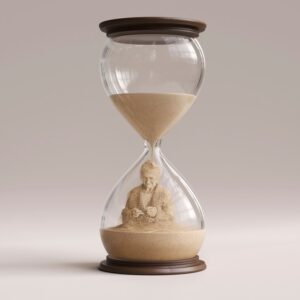Rosewood History

TIMELINE
1840’s A track developed between Ipswich and the Darling Downs, passing along the southern edge of the Rosewood Scrub.
Samuel Owens received approval to open a wayside inn (Woolpack Inn) at the Old Man Waterhole (Calvert).
1857. 1st December – A new publicans’ licence was granted to Michael O’Brien, Rising Sun, Rosewood at a Court of Petty Sessions.
10th December – The bridge over the Three Mile Creek opened for traffic and a good and substantial log causeway at the Seven Mile Creek was finished.
1861. August – The formation of the road through Rosewood Scrub about 9 miles beyond Ipswich was completed.
1865. 31st July – The railway line from Ipswich to Bigge’s Camp (Grandchester) opened to traffic.
1866. The Rosewood Gate became a conditional stop on the railway line.
1867. 17th August – The Rosewood Scrub was thrown open to free selection by proclamation in the Government Gazette.
1868. 1st March – The Macalister’s Crown Lands Alienation Act restricted sales of Crown land to lots of land located in the country.
1869. Preparations for cotton-growing were being made near the Rosewood Gate.
1873. James Foote and William Mathew each gave half a chain of land along the boundary of their properties for a road for public use (John street, Rosewood).
1875. 1st February – Rosewood Gate Mixed Primary School opened with Dan Desbois as the first teacher.
1876. Mason’s Bridge was built.
1876. Coal mining began near Walloon. An exploratory shaft was sunk at Rosewood in the hope of finding coal for the locomotives.
1878. July – Under the Electoral Districts Act of 1878, Rosewood Gate became Rosewood.
1879. 11th November – The Walloon Division was created as one of 74 divisions within Queensland under the Divisional Boards Act 1879.
1884. 19th September – Olivia Vance sold by auction 40 township allotments (Elias Harding jnr Auctioneer)
1890. August -The Lanefield Farmers’ Co-operative Company was established.
1892. November – Rosewood Court Room was built. (Contractor James Campbell Thomson)
1903. 31st March – Under the Local Authorities Act 1902, the Rosewood Division became the Shire of Rosewood, while the Walloon Division became the Shire of Walloon.
1905. 27th July – The new Rosewood State School was officially opened by the Hon. A.H. Barlow, Minister for Public Instruction.
1907. 23rd September – The new Rosewood Courthouse and police station was informally opened.
1909. 29th October – Vaisey & Co Ltd was registered. The Rosewood Register and Marburg Mail began operations.
1910. 13th February – St Brigid’s Catholic Church was opened by Bishop Duhig.
1911. January – The Epidemic Hospital opened to accomodate patients.
1912. 26th January – A branch railway line was opened connecting Rosewood to Marburg.
27th January – The School of Arts opened opposite the Rising Sun Hotel.
1915. 25th November – The Dungarees left Laidley and marched over the Liverpool Range to Rosewood.
1916. 13th October – Five shires of the local government areas in and around Ipswich were abolished (Brassall, Bundanba, Lowood, Purga, Walloon) resulting in an enlarged Shire of Rosewood by including part of the Shire of Walloon.
1922. Q.A.T.B. branch was established in Rosewood.
St Brigid’s Catholic Primary School opened in January.
1923. 25th April – The War Trophies were unveiled in Anzac Park.
1924. 7th August – The Rosewood Branch of the C. W. A. was formed.
1929. 14th April – Rosewood Golf Links opened.
1931. 15th December – The electric lights were switched on.
1932. The street lights were switched on.
1939. 30th June – The New Majestic Theatre opened (Proprietress Mrs F. Boughen).
1941. The building originally used as the Post Office at Marburg was moved to Rosewood for the Rosewood Post Office.
1946. 20th June – The Recreation Footwear Factory commenced operations in John Street.
1948. 14th April – At a meeting of citizens in the Rosewood Farmers’ Hall, it was decided to form a Rosewood Chamber of Commerce.
1949. 29th January – Rosewood Shire was incorporated into Moreton Shire.
1954. The Memorial Hall was built in William Street.
1968. 23rd July – The new bridge opened over the Seven Mile by the Governor of Queensland, Sir Alan Mansfield.
1980. Rosewood State High School opened.
1982. Sellars supermarket and Arcade complex was opened.
1987. October – The Rosewood Aged People’s Home opened. Renamed Cabanda in 1990.
1988. 20th November – The Rosewood Historic Railway was opened to the public.
1993. 21st December – The electric train service to Rosewood began.
2001. Rosewood Community Centre opened in School Street.
2002. 18th July – Rosewood Detention Basin was opened by Wilson Tucket, M.P.
2013. The New Oakleigh Coal Mine, the last near the town, closed down.
2020. 25th July – The Rosewood Library was opened by local government minister Stirling Hinchliffe.
2023. October – Renovations began on the exterior of The Rising Sun Hotel. In December the Police Station was demolished. The site was cleared in preparation for the relocation of the old police house from its original position on the corner of Railway and John Street.
2024. In January groundwork began for the erection of a new Rosewood Police Station. It was officially opened Thursday, 26th September by the Honourable Mark Ryan MP (Minister for Police and Community Safety) and Acting Commissioner Shane Chelepy APM (Queensland Police Service).
